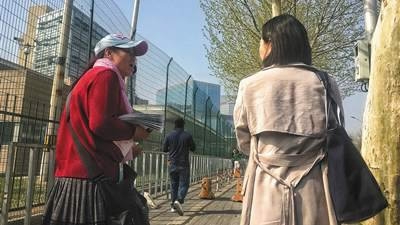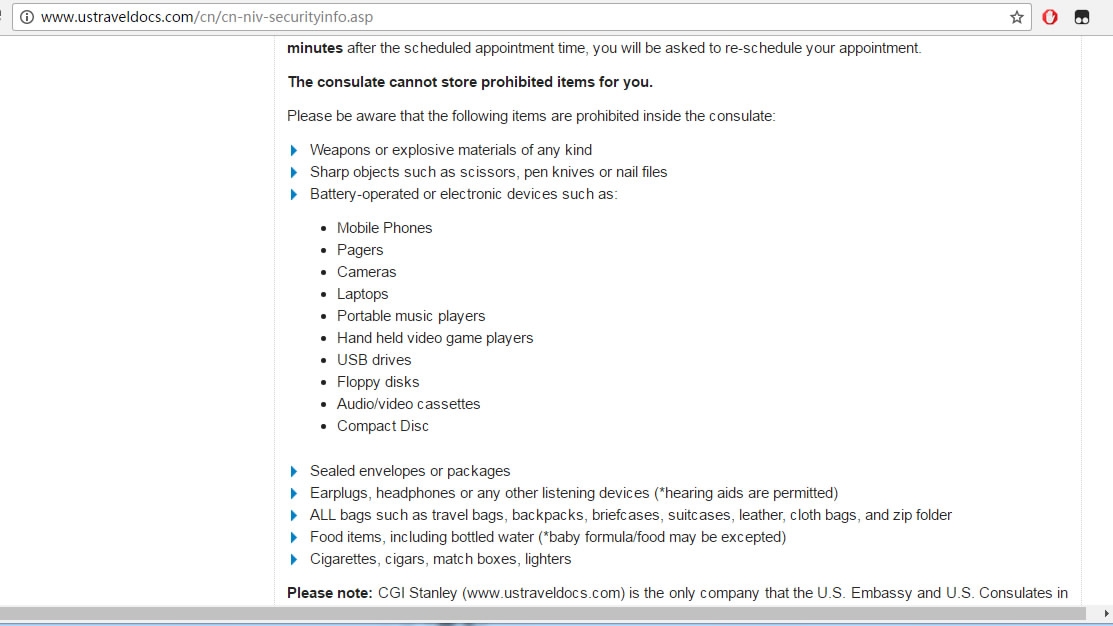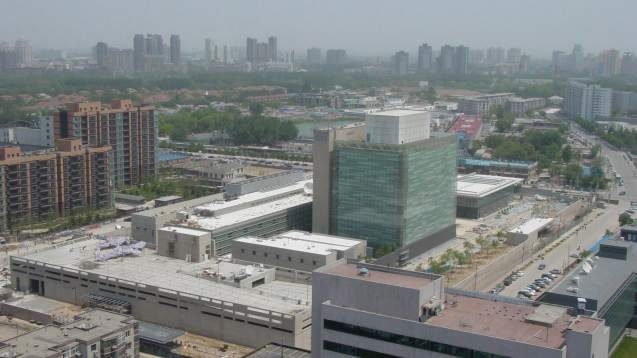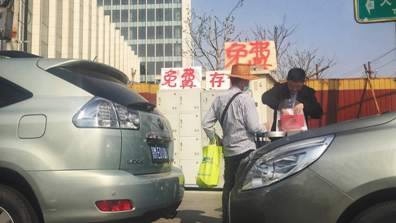Meet the visa agents earning a gray-market living outside Beijing’s US embassy
2017-04-11 18:19 GMT+8

Editor
Wang Wei
"Are you here for a visa? Your bag and cellphone are not allowed inside the office." Such helpful tips are freely dispensed to people walking down Tianze Road in east Beijing's Chaoyang District, just outside the Visa Office of the US Embassy.
Following the information will be the eager offer of a temporary storage service for 30 yuan (4.4 US dollars). Once the bag is handed over, usually after a moment of hesitation, the customer will receive a small token, bearing a cellphone number.
"Just call me when you get out. Pay up when collecting the bag. I will be hanging around here or across the road," the service provider usually says upon closing the deal, promptly turning away to seek the next customer.
The bags are securely slung on the arms of the entrepreneur, or safely stowed in the trunks and back passenger seats of cars parked nearby.

Visa applicants are not allowed to bring items such as mobile phones and USB drives, according to the security regulations of the US Embassy Visa Office. /Screenshot.
Such operators of temporary storage and other trivial and more complex intermediary services have become an institution outside the US Embassy in Beijing, the third-largest American diplomatic mission in the world. The 46,000 square-meter facility prohibits entry with a long list of daily items and doesn't provide storage for larger bags, as stated in its security regulations.
"For holding bags, I make 200 to 300 yuan every day," disclosed a squat man in his late 40s who asked to be identified only as Mr. Wang. "But it will make my month if someone entrusts the whole affair to me."
Mr. Wang and his competitors serve as agents and advisors in helping acquire visas, including running all the errands.
For a package visa service, Mr. Wang can earn up to 1,000 yuan. He considers it a reasonable price: "After all, who would fuss about such a pittance if they can afford a visit to the US?"

US Embassy in Beijing. /Public Domain image
These practitioners outside the Visa Office are often raided and fined by the local urban management authorities. A major provider once had his row of lockers on the sidewalk all confiscated. However, the dispersed entrepreneurs always soon return, thanks to the persistent demand of visa applicants.
According to staff in the Maizidian Police Station nearby, there have been virtually no reports of bag holders stealing from their clients, although operators sometimes get overly competitive and resort to physical arguments.
"Most of us have little education and we usually get about 6,000 yuan a month," Mr. Li Fang said. The 50-something was picked up by the police for loitering and disturbing the peace and spent a couple of days in detention in January. But for unskilled migrant workers of his age, there are few more comfortable livelihoods.

A storage service provider concluding a transaction. /Beijing News Photo.
Among the service providers who are mostly from out of town, Mrs. Zhou Wenfang is distinctive for having a Beijing household registration, or hukou. The sprightly octogenarian is generally the oldest among the bunch plying their trade on the sidewalk, and her Senior Citizen's Certificate, issued by Beijing's municipal government and prominently displayed at the end of a lanyard, gives her extra credibility. People tend to trust locals more than migrant workers in China.
"I've been storing bags for 26 years; my daughter is a school teacher and she comes to help whenever she has time," Mrs. Zhou said, listening attentively through a hearing aid.
She said it has become much easier to get a visa. In the past, Chinese generally went to the U.S. to visit family and relatives, but nowadays the majority of applicants are students bound for American colleges.
Mrs. Zhou has a favorite story from about 20 years ago of “a young woman who tried so hard to join her husband in America. She succeeded in getting the visa on her 18th attempt and wept uncontrollably upon leaving the office. It was so hard to get a visa back then."
It may have gotten easier to secure a precious U.S. visa, but applicants in Beijing are likely to need to negotiate tricky logistics like storing their bags and cellphones for some time to come.
(With inputs from Beijing News)
Copyright © 2017
